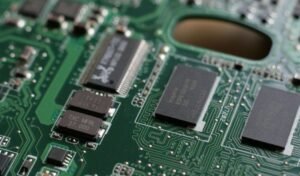What Is the Most Advanced Technology Today?
Technology is constantly evolving, pushing boundaries, and driving innovation in every sector. With the rapid pace of advancements, it can be challenging to pinpoint the single most advanced technology today. However, there are several groundbreaking technologies that are pushing the boundaries of what is possible.
Key Takeaways:
- The most advanced technology today encompasses fields such as artificial intelligence, quantum computing, and biotechnology.
- Advancements in AI are revolutionizing various industries, enhancing automation, and enabling new applications.
- Quantum computing holds the potential to solve complex problems at an unprecedented speed.
- Biotechnology is driving breakthroughs in healthcare, agriculture, and sustainable solutions.
**Artificial intelligence (AI)** is a rapidly advancing technology that involves the development of intelligent machines capable of performing tasks that typically require human intelligence. From autonomous vehicles to chatbots and personalized recommendations, AI is revolutionizing various industries. *AI-powered virtual assistants are becoming increasingly smarter, understanding and responding to natural language queries with remarkable accuracy.*
The Rise of AI
Breakthroughs in AI research, including the development of deep learning algorithms and improved computational power, have propelled the rapid progress in this field. The applications of AI are vast and extend across industries, including healthcare, finance, transportation, and entertainment. *AI is also being used to detect and predict diseases based on medical imaging and genetic data, allowing for early interventions and personalized treatment plans.*
AI has the potential to automate various routine tasks, enhance decision-making processes, and unlock new possibilities. However, concerns surrounding ethics, privacy, and job displacement persist. Organizations and policymakers must work together to ensure that AI is developed and deployed responsibly, with transparency and accountability.
Quantum Computing: Unleashing Unprecedented Power
**Quantum computing** is a cutting-edge technology that utilizes quantum bits (qubits) to process and store information. Unlike classical computers, which use binary digits (bits) that can be either 0 or 1, qubits can exist in a superposition of both states simultaneously, exponentially expanding computational power. *Quantum computers can potentially solve complex problems, such as optimizing logistics, simulating molecular interactions, and breaking encryption, at an unimaginable speed.*
| Aspect | Classical Computing | Quantum Computing |
|---|---|---|
| Processing speed | Limited | Exponential |
| Storage capacity | Finite | Infinite |
| Problem complexity | Linear | Exponential |
While quantum computing is still in the early stages of development, progress is being made in building more stable and scalable qubits. The potential applications of this technology span various domains, including optimization, cryptography, drug discovery, and climate modeling. As the field continues to evolve, quantum computing has the potential to revolutionize industries and solve complex problems that are currently intractable for classical computers.
Biotechnology: Advancing Life Sciences
**Biotechnology**, a multidisciplinary field that combines biology and technology, is driving significant advancements in healthcare, agriculture, and sustainable solutions. From gene editing technologies, such as CRISPR-Cas9, to the development of biomaterials and synthetic biology, biotechnology is reshaping industries and enhancing our understanding of living organisms. *Scientists are now exploring the possibility of using gene editing techniques to eradicate genetically inherited diseases, potentially transforming the future of healthcare.*
Biotechnology also plays a pivotal role in addressing global challenges, including food security, renewable energy production, and environmental conservation. Innovations in agricultural biotechnology have led to increased crop yields, disease resistance, and reduced reliance on chemical pesticides. Furthermore, the development of biofuels and biodegradable materials promotes sustainability and reduces carbon emissions.
Conclusion
With advancements happening at an unprecedented pace, determining the most advanced technology today is an ongoing challenge. However, artificial intelligence, quantum computing, and biotechnology represent some of the most exciting and transformative fields.

Common Misconceptions
About the Most Advanced Technology Today
With rapid advancements in technology, it’s easy for misconceptions to arise regarding what is considered the most advanced technology today. Here are some common misconceptions:
Misconception 1: The most advanced technology is always the newest one
People often assume that the most advanced technology is always the most recent invention or discovery. However, this is not necessarily true. Advanced technology can encompass both new breakthroughs and existing technologies that have evolved significantly.
- Advanced technology may incorporate older technologies that have been refined and enhanced.
- Advancements in software and algorithms can greatly impact the capabilities of existing technologies.
- Technologies that have been around for some time may still be considered the most advanced due to their wide-reaching applications and significant impact.
Misconception 2: The most advanced technology is always visible
Another misconception is that the most advanced technology is always tangible and easily seen. However, many advanced technologies may not be visible to the naked eye as they can exist in the virtual realm or work behind the scenes.
- Advanced artificial intelligence (AI) algorithms can improve automation and decision-making processes without any visible hardware.
- Cloud computing technologies can revolutionize data storage and processing without requiring physical servers.
- Advanced networking technologies like 5G can have significant impacts without being directly noticeable.
Misconception 3: The most advanced technology is always expensive
People tend to associate advanced technology with high costs, assuming that cutting-edge advancements are only accessible to the wealthy or large organizations. However, this is not always the case.
- Open-source technologies, available to all, can be at the forefront of advancements.
- Some breakthroughs in healthcare, such as low-cost diagnostic devices or affordable prosthetics, can have a profound impact despite being cost-effective.
- Many technological advancements eventually become more affordable as they progress and become more widely adopted.
Misconception 4: The most advanced technology is always perfect
Another misconception is that the most advanced technology is flawless and without any limitations. However, even the most cutting-edge technology has its limitations and challenges that need to be addressed.
- Artificial intelligence algorithms may still exhibit biases or inaccuracies, requiring ongoing improvement.
- Battery technology, while advanced, still faces constraints in terms of capacity and charging time.
- Quantum computing, although a groundbreaking technology, is still in its early stages and faces numerous technical hurdles.
Misconception 5: The most advanced technology is always embraced universally
It is often assumed that the most advanced technology is rapidly adopted by everyone without any resistance or challenges. However, the adoption and acceptance of advanced technology can vary widely.
- Cultural and societal factors can influence the adoption of certain technologies.
- Regulatory frameworks and policies may hinder or delay the implementation of advanced technologies in certain areas.
- Technological advancements can sometimes face skepticism or resistance due to concerns about privacy, security, or ethical implications.

What Is the Most Advanced Technology Today?
Technology has rapidly evolved over the years, bringing us groundbreaking inventions and innovations that once seemed like mere figments of our imagination. In this article, we explore ten remarkable advancements in various fields, from artificial intelligence to renewable energy.
Quantum Computers
The future of computing lies in quantum computers. These extraordinary machines utilize quantum bits or qubits to perform calculations significantly faster than classical computers.
| Quantum Computer | Processing Power (Qubits) | Year |
|---|---|---|
| IBM Q System One | 20 | 2019 |
| Google Sycamore | 54 | 2019 |
| Honeywell | 128 | 2020 |
Self-Driving Cars
Autonomous vehicles are transforming the way we commute. These cars have advanced sensors and algorithms that allow them to navigate roads without human intervention.
| Car | Company | Year |
|---|---|---|
| Tesla Model S | Tesla Inc. | 2012 |
| Waymo One | Waymo | 2020 |
| Audi A8 | Audi AG | 2017 |
3D Printing
3D printing has revolutionized the manufacturing industry by enabling the creation of intricate objects through additive processes. From prototypes to medical implants, the possibilities are vast.
| Application | Material Used | Year |
|---|---|---|
| Organoid Models | Human Cells | 2021 |
| Aerospace Components | Titanium | 2018 |
| Prosthetic Limbs | PLA Plastic | 2013 |
Robotics
The field of robotics has witnessed immense progress, enhancing productivity and presence in various industries. Humanoid robots are becoming more adept at performing tasks alongside humans.
| Robot | Task | Year |
|---|---|---|
| Atlas | Parkour | 2020 |
| Sophia | Citizen Robot | 2016 |
| Roomba | Vacuum Cleaning | 2002 |
Renewable Energy
Investments in renewable energy sources have propelled the shift towards a greener future, reducing our dependence on fossil fuels and mitigating climate change.
| Energy Source | Capacity (GW) | Year |
|---|---|---|
| Solar Power | 651 | 2020 |
| Wind Power | 743 | 2020 |
| Hydropower | 1330 | 2021 |
Artificial Intelligence
Artificial intelligence has become an integral part of our lives, revolutionizing industries such as healthcare, finance, and entertainment.
| AI Application | Field | Year |
|---|---|---|
| AlphaGo | Board Games | 2016 |
| Siri | Virtual Assistant | 2011 |
| DeepMind | Healthcare | 2020 |
Bioinformatics
The intersection of biology and informatics has led to significant advancements in genomics, drug discovery, and personalized medicine.
| Application | Impact | Year |
|---|---|---|
| Genome Sequencing | Diagnosis and Treatment | 2001 |
| Drug Target Identification | Efficient Drug Development | 2014 |
| Pharmacogenomics | Personalized Medicine | 2016 |
Virtual Reality
Virtual reality has transformed the way we experience entertainment, allowing us to explore immersive worlds and interact with virtual objects.
| VR Device | Company | Year |
|---|---|---|
| Oculus Rift | Oculus VR | 2016 |
| HTC Vive | HTC | 2016 |
| PlayStation VR | Sony | 2016 |
Biotechnology
Scientific advancements in biotechnology have the potential to revolutionize healthcare, agriculture, and environmental sustainability.
| Advancement | Impact | Year |
|---|---|---|
| CRISPR-Cas9 | Gene Editing | 2012 |
| Genetically Modified Crops | Increased Yield | 1996 |
| Tissue Engineering | Organ Regeneration | 2006 |
Conclusion
In this era of rapid technological advancement, numerous extraordinary innovations have reshaped the world we live in. From the quantum realm to biotechnology, these advancements hold immense promise for a brighter future. Harnessing the potential of these advancements responsibly will continue to drive progress and benefit society as a whole.
Frequently Asked Questions
Q1: What are some examples of the most advanced technology today?
A1: What are some examples of the most advanced technology today?
Some examples of advanced technologies today include artificial intelligence, virtual reality, autonomous vehicles, nanotechnology, quantum computing, genetic engineering, and renewable energy technologies.
Q2: How does artificial intelligence (AI) work?
A2: How does artificial intelligence (AI) work?
Artificial intelligence involves the development of computer systems that can perform tasks that typically require human intelligence. AI works by using algorithms and machine learning techniques to process large amounts of data, identify patterns, make predictions, and adapt to new situations.
Q3: What is virtual reality (VR) technology?
A3: What is virtual reality (VR) technology?
Virtual reality technology creates an immersive, computer-generated environment that simulates a realistic experience. Users can interact with this virtual world through specialized devices, such as headsets and controllers, and experience a sense of presence in the digital environment.
Q4: What are autonomous vehicles?
A4: What are autonomous vehicles?
Autonomous vehicles, also known as self-driving cars, are vehicles that can operate without human input. They use a combination of advanced sensors, artificial intelligence, and connectivity to navigate roads, detect objects, and make decisions in real-time.
Q5: How does nanotechnology work?
A5: How does nanotechnology work?
Nanotechnology involves manipulating materials at the atomic or molecular scale to create new functionalities and properties. It utilizes nanoscale structures and devices to design and manufacture materials with enhanced properties for various applications.
Q6: What is quantum computing?
A6: What is quantum computing?
Quantum computing utilizes the principles of quantum mechanics to perform complex computations. Instead of using traditional bits, which represent either 0 or 1, quantum computers use qubits that can exist in multiple states simultaneously, allowing for parallel processing and potentially solving certain problems more efficiently.
Q7: What is genetic engineering?
A7: What is genetic engineering?
Genetic engineering involves manipulating the DNA of organisms to introduce new characteristics or modify existing ones. It enables scientists to create genetically modified organisms (GMOs) and has various applications in fields such as medicine, agriculture, and industrial processes.
Q8: What are renewable energy technologies?
A8: What are renewable energy technologies?
Renewable energy technologies harness naturally replenishing resources, such as solar, wind, hydro, geothermal, and biomass energy, to generate electricity or provide heating and cooling solutions. These technologies help reduce dependence on fossil fuels and mitigate environmental impacts.
A1: What are some examples of the most advanced technology today?
A2: How does artificial intelligence (AI) work?
A3: What is virtual reality (VR) technology?
A4: What are autonomous vehicles?
A5: How does nanotechnology work?
A6: What is quantum computing?
A7: What is genetic engineering?
A8: What are renewable energy technologies?




